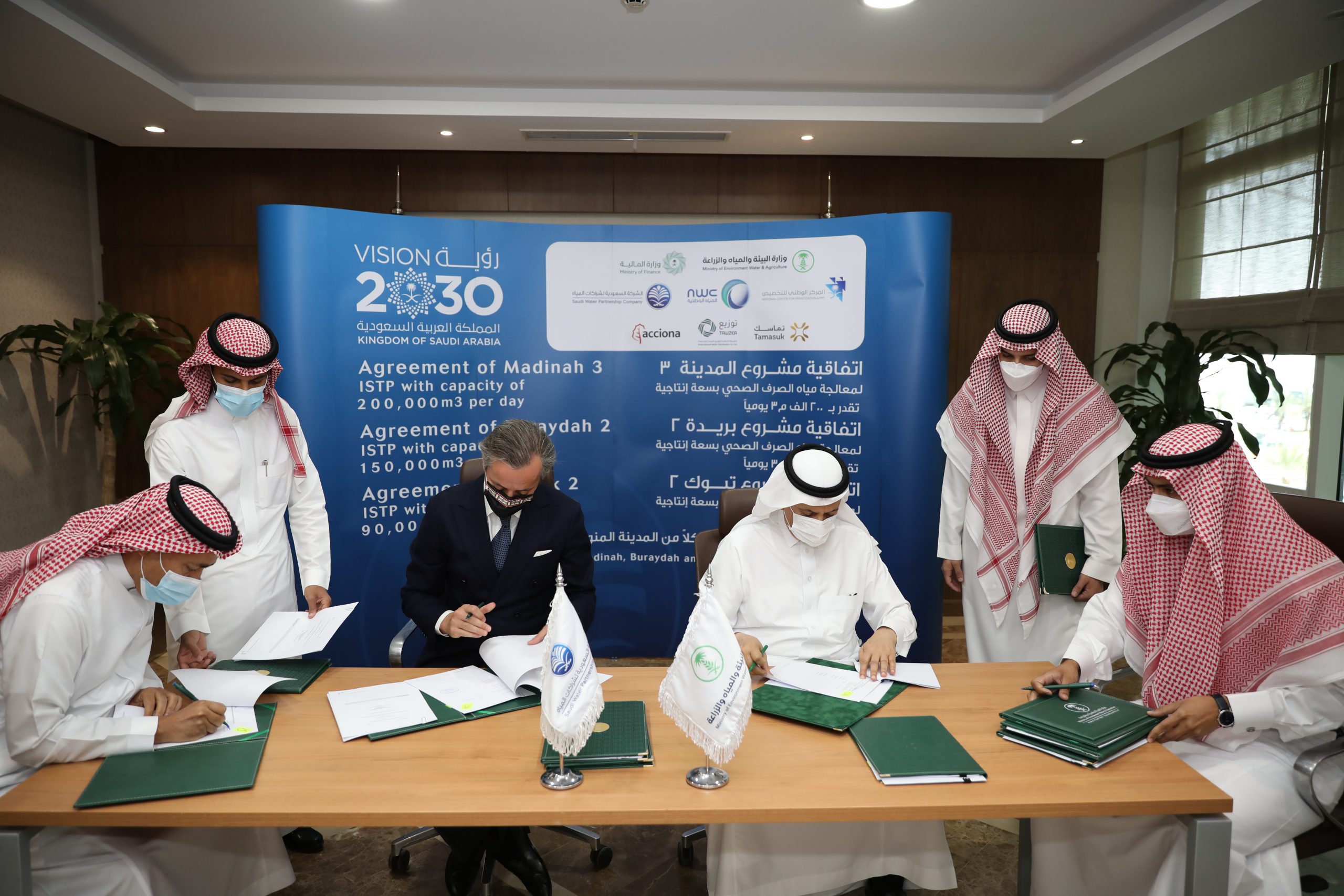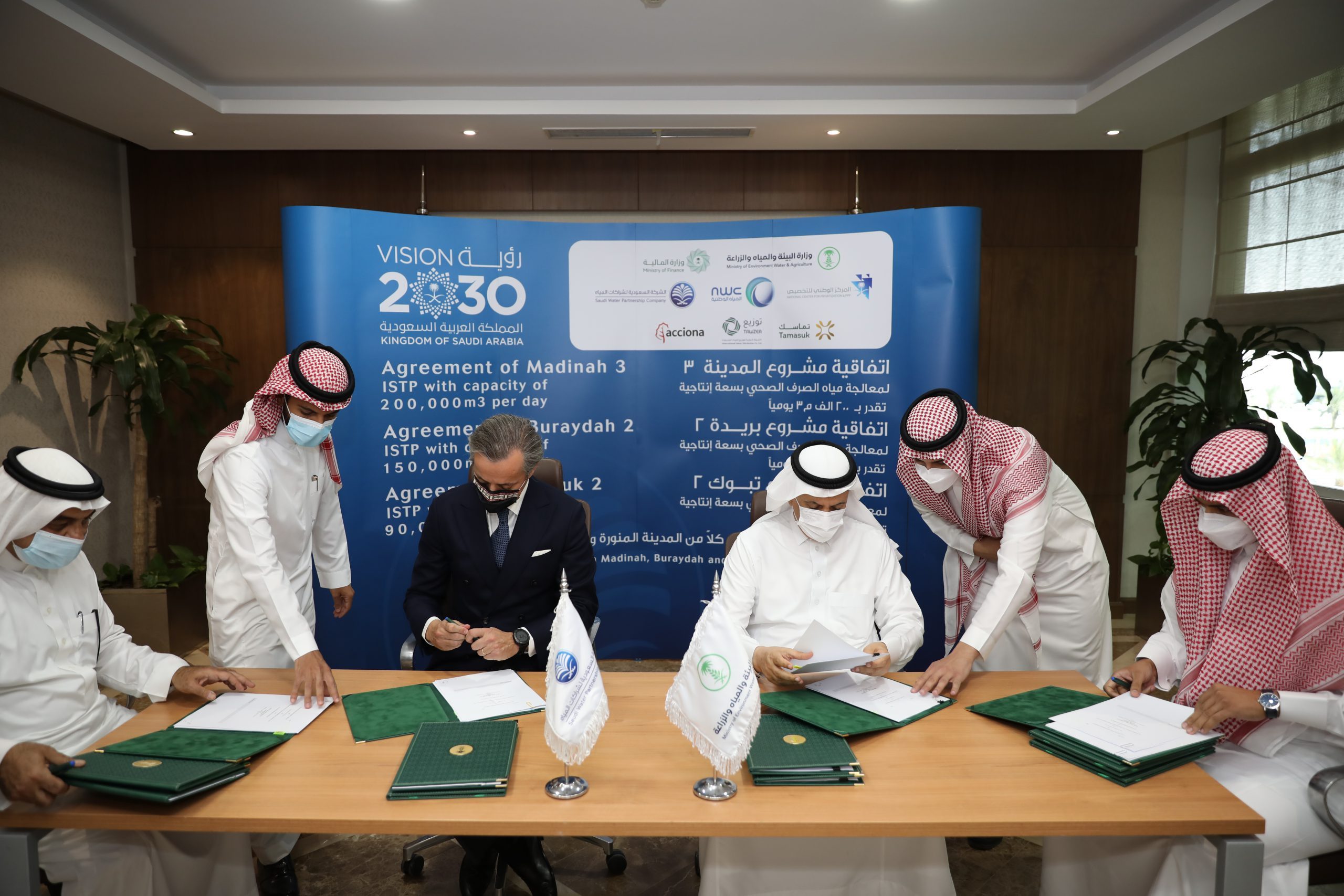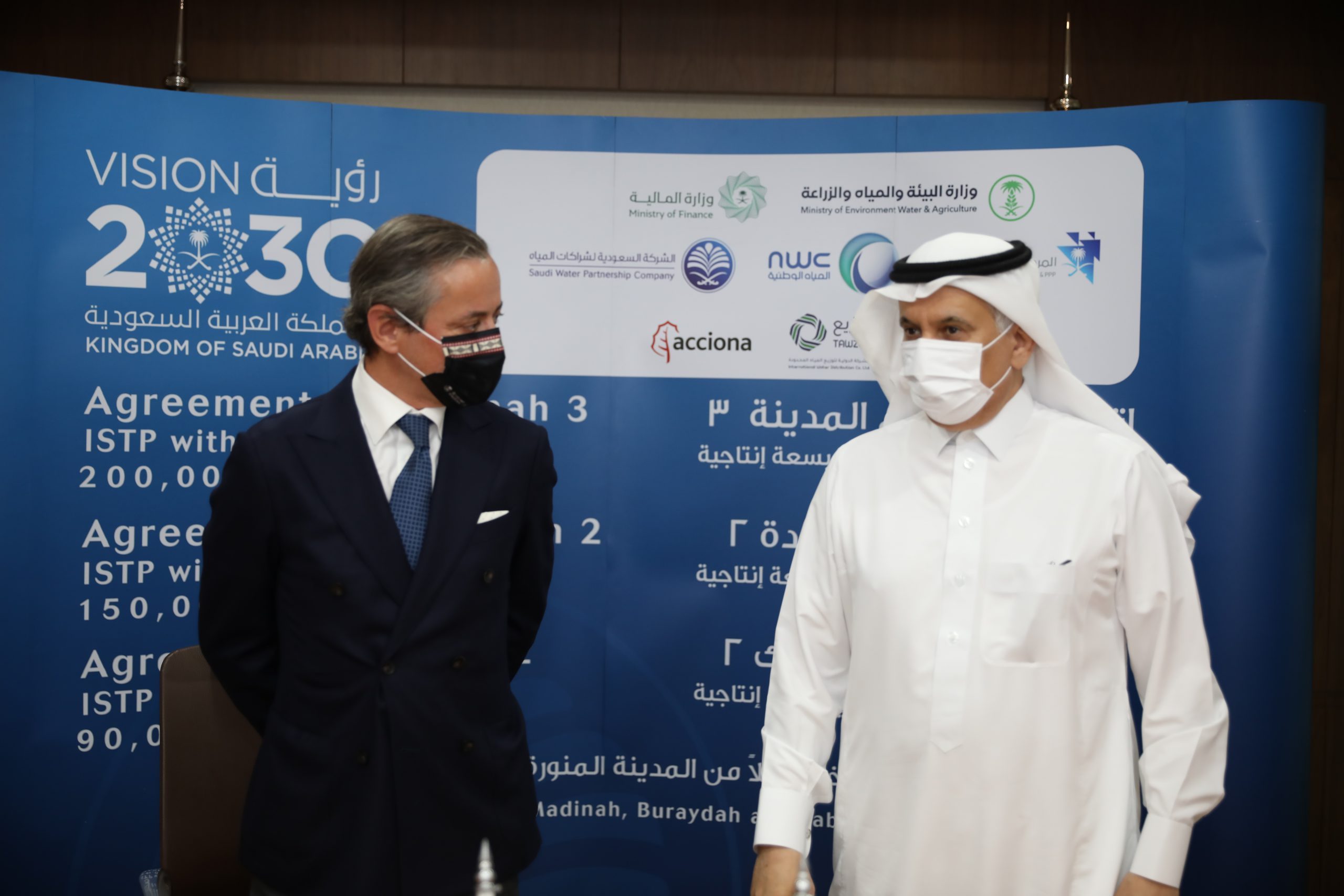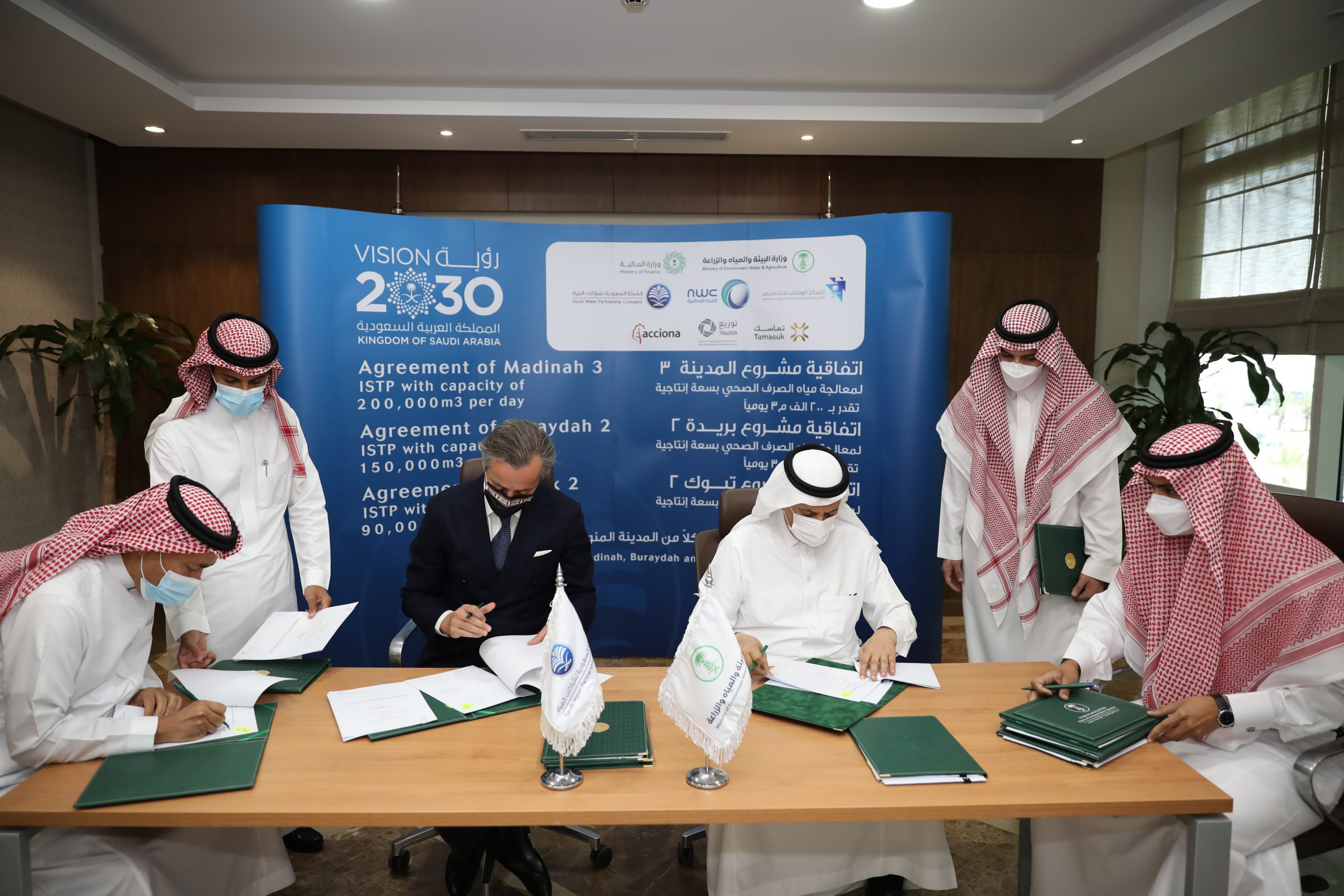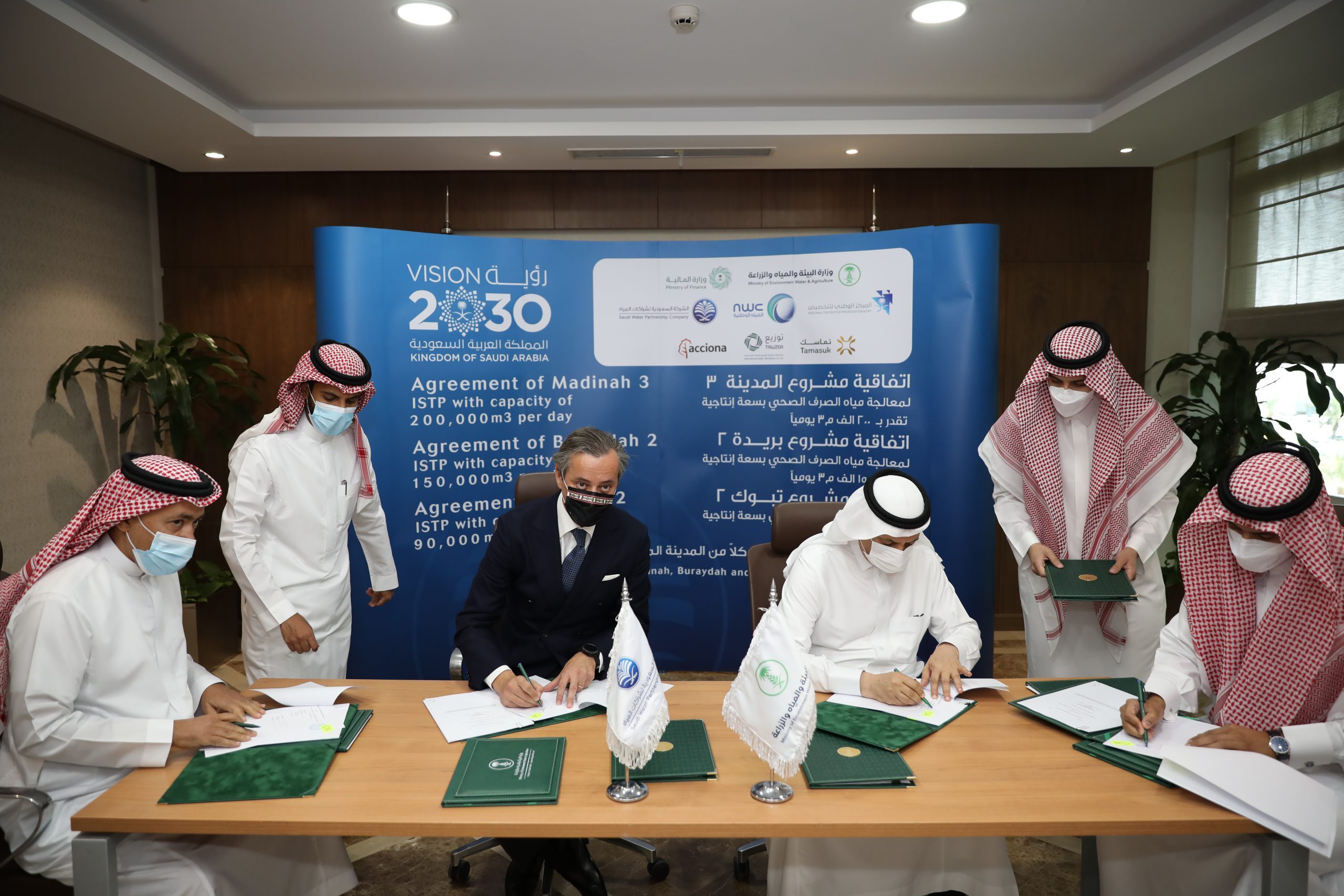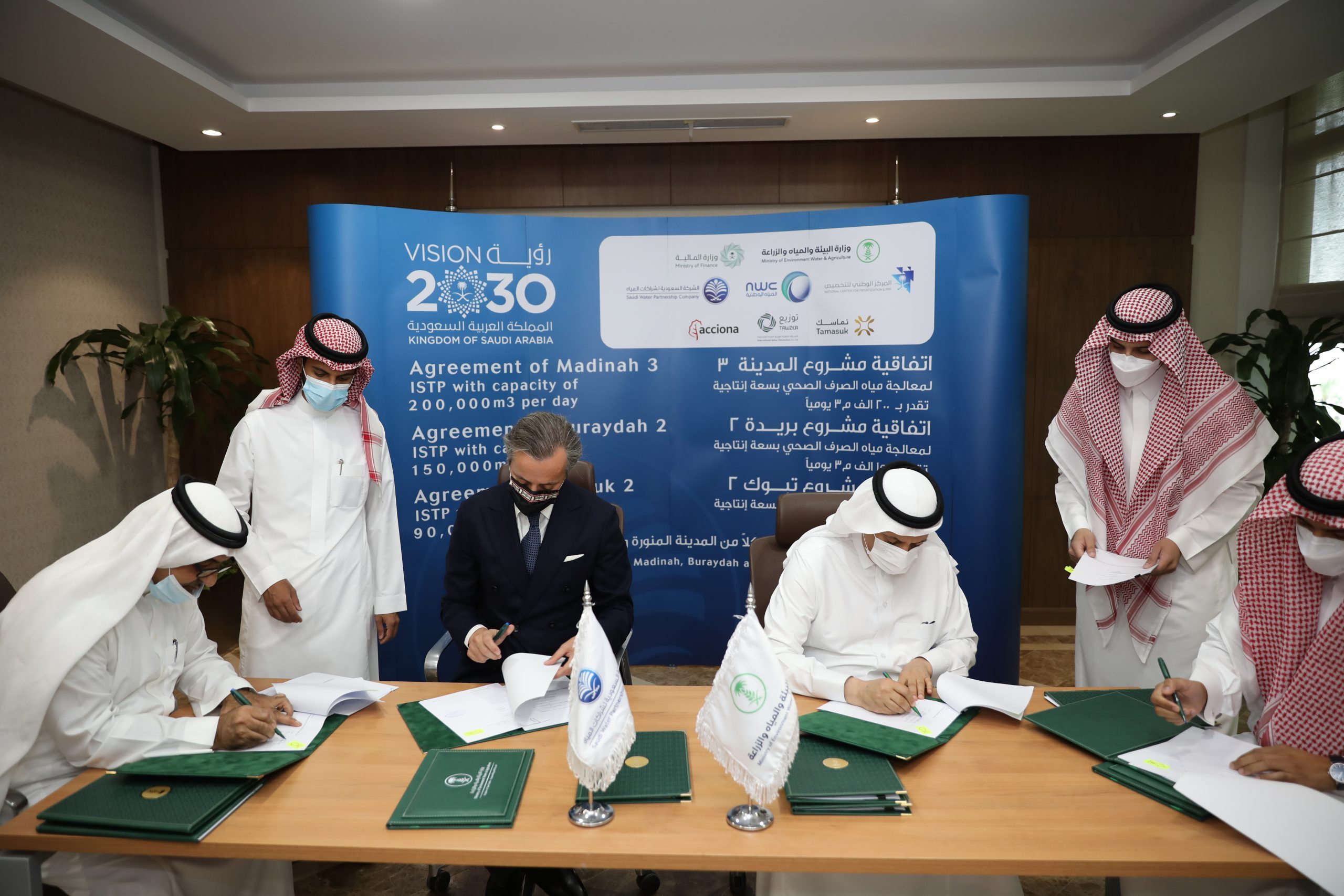Signing an agreement for the Buraidah-2 and Tabuk-2 projects
His Excellency the Minister of Environment, Water and Agriculture, & Chairman of the Board Directors of Saudi Water Partnership Company Eng. Abdulrahman bin Abdulmohsen AlFadley, signed today the Project agreements of Buraydah-2 and Tabuk-2 Independent Sewage Treatment Plant Projects, which will be established in the Qassim and Tabuk Provinces respectively, with a Water Treatment capacity of 150,000 m3/day for Buraydah-2 and 90,000 m3/day for Tabuk-2, with the Preferred bidder through a competitive Bidding process.
Eng. Al-Fadley explained that the signing of these agreements help in implementing the decisions of the Council of Ministers, and achieving the goals and plans of the Ministry to showcase water production and wastewater treatment projects in the various regions of the Kingdom in front of investors. In addition it is an extension of the signing of previous projects and further enhances the active participation of the private sector in developing this vital Water sector and increasing its contribution to the Kingdom development.
Whereas, the allocation of these Projects under the Environment, Water and Agriculture structure accomplish the goals of Kingdom’s 2030 vision, the Privatization programs improves the quality of services and the efficiency of capital spending, by utilizing the experiences of the Private sector participation in this regime.
On his part, the CEO of the Saudi Water Partnership Company, Eng. Khalid Bin Zwaid AlQureshi, stated that the project was presented to the investors in BOOT (Build, Own, Operate and Transfer) approach, in which the winning consortium was chosen after a competition that took place between 3 consortiums, including 6 local companies and 3 international companies. Whereas, the winning consortium for the project comprising Acciona, Tawzea and Tamasuk. stating that the project will be using "SBR" technology and Serving the beneficiaries in Qassim and Tabuk Provinces. Also it will include solar energy units to reduce the electricity consumption from the grid.
Al-Quraishi said that the Project commercial operation date for both projects will be in the second quarter of 2024, and that the Project term of concession is 25 years, and it will contribute to achieving high levels of continuous water treatment, lower levels of specific electric energy consumption and operating costs. Moreover, in addition to supporting local content by increasing the percentage of Saudization in business and human resources.
The agreements which were signed today at His Excellency the Minister’s office are part of the Public Private Partnerships (PPP) that the Ministry of Environment, Water and Agriculture intends to present to investors, and the supervisory committee to allocate the environment, water, and agriculture sector during the past months has completed developing a strategy to allocate the sector in line with the goals of “Vision 2030”.
In turn, the CEO of the National Center for Privatization, a Board member of the Saudi Water Partnership Company, Eng. Rayan bin Mohammed Naqadi, pointed out that it is a great effort to establish a system of partnership between the public and private sectors and the application of international best practices, noting that since the center set the standards, frameworks, and legislation for the partnership between the public and private sectors, Contracts for allocating a number of projects have been signed in several sectors, most of them under the Ministry of Environment, Water and Agriculture, and that the Kingdom is steadfastly moving towards implementing the Saudi Vision 2030, and we have confidence in reaching what we aspire by 2030 to diversify the national economy and generate more job opportunities for Saudi nationals and attain the highest level of local content.
Naqadi concluded that the local content of this initiative amounts to 50% in the construction phase and during the first five years of operation and increases to 70% during the remaining years.
This initiative is an extension of the allocation and partnership processes between the public and private sectors in the environment, water and agriculture sectors whose agreements are signed, after the successful completion of the signing of several projects for the independent water production and wastewater treatment.

